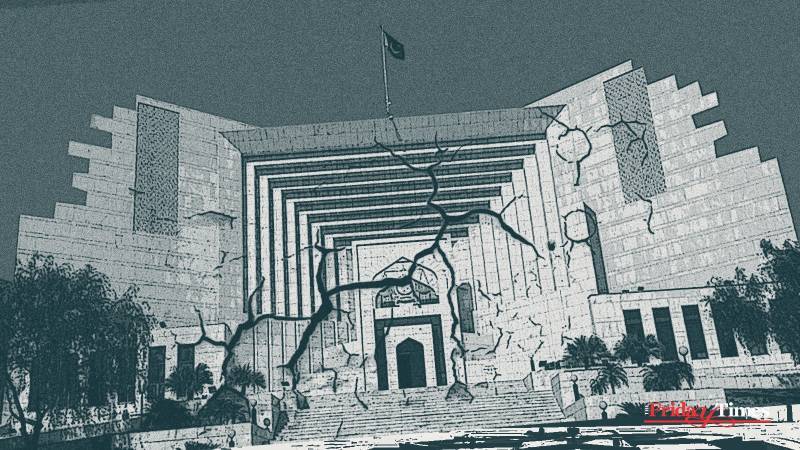
January 4, 2011, was a typically cold and dull day and, as usual, a misty fog was refusing to lift for sunlight to filter through over an already sleepy Islamabad. That same afternoon, Salmaan Taseer, the then-Punjab governor, was having lunch with an old friend at one of the trendy cafes of Kohsar market in Islamabad. His security detail, stationed at a little distance, stood ready, alert and well-positioned in their open police vehicles to protect their boss had the need arisen—on paper, anyway. With his son Shahryar’s birthday in mind, he was set to drive back to Lahore to join his family and celebrate the occasion later that evening.
As both friends parted, having finished their lunch, one of the policemen deputed to protect Taseer, in a stunning and audacious show of faux religiosity emptied the whole magazine of his official Ak-47 into the governor’s body. Mumtaz Qadri waited until the governor’s friend moved to a safe distance before turning on the person he was supposed to protect. His colleagues, deputed to protect Taseer, didn’t even make an effort to stop him from a blatant and criminal dereliction of duty. However, they arrested him once he had been palpably allowed to accomplish his task in “peace”.
After having become a prime target for his views on the ill effects of the unfairly skewed blasphemy laws of Pakistan, Salmaan Taseer had traveled to Islamabad to garner support from the Pakistan People’s Party (PPP) and especially to eke out a standard statement from his old friend and the then-President Asif Ali Zardari. Needless to say, he had miserably failed, and the continuing silence from the ruling PPP was deafening.
Apart from Salmaan Taseer’s assassination, the murder of Shahbaz Bhatti, a Christian minister in the then PPP administration and attacks on Ahmadi places of worship in Model Town and Garhi Shahu, Lahore in 2010, are just a few examples of the atmosphere of fear and insecurity that minorities in Pakistan have had to endure over the years.
A Supreme Court bench headed by Chief Justice Qazi Faez Isa, while allowing bail to the accused, Mubarak Sani, had ‘innocuously’ mentioned his right under the aforesaid article, which was blown so much out of proportion that the ‘objectionable’ paragraphs were deliberately caricatured in the media as heretic and blasphemous
Fast forward to 2024 and the interpretation of Article 20 of the Constitution to profess religion and to manage religious institutions has shrunk to exactly how the religious fringe deems it to mean. The recent case of Mubarak Sani has brought the country face to face with the frightening reality of how, in a supposedly constitutional democracy like Pakistan, a medieval mindset has managed to completely hijack the issue of fundamental rights guaranteed under our Constitution, especially with respect to religious freedoms.
Although courts refrain from commenting on the merits of the case and stop short of conducting a deeper appreciation of evidence at the bail stage to avoid prejudicing proceedings pending before the trial court, reiterating a constitutional right to profess one’s religion was hardly akin to conducting a mini-trial! A Supreme Court bench headed by Chief Justice Qazi Faez Isa, while allowing bail to the accused, Mubarak Sani, had ‘innocuously’ mentioned his right under the aforesaid article, which was blown so much out of proportion that the ‘objectionable’ paragraphs were deliberately caricatured in the media as heretic and blasphemous.
So much so that major media platforms such as Geo News went to absurd lengths to paint the same as such in a live show, never mind the muteness of government ministers and even the opposition Pakistan Tehreek-e-Insaf (PTI) who had their own axe to grind and/or to settle old scores. Such are the depths of collective lunacy that the country has irretrievably descended to. In an eerily deserted and literally hushed-up capital, the inevitable happened, and the said paragraphs were redacted by the Supreme Court bench while bowing to extreme intimidation and thuggery by the obscurantist forces, which have alarmingly become even more powerful than ever before.
So what has changed? With the passage of time, the room for courts to assert themselves while applying the law and the Constitution has drastically shrunk. When Mumtaz Qadri’s appeal against his death sentence came up before the Supreme Court, Justice Asif Saeed Khosa stood firm and upheld his death sentence. Unfortunately, the same space to dispense justice, which the judiciary previously used to take for granted, is no longer available.
Things have seemingly gone from bad to worse since January 4, 2011.

